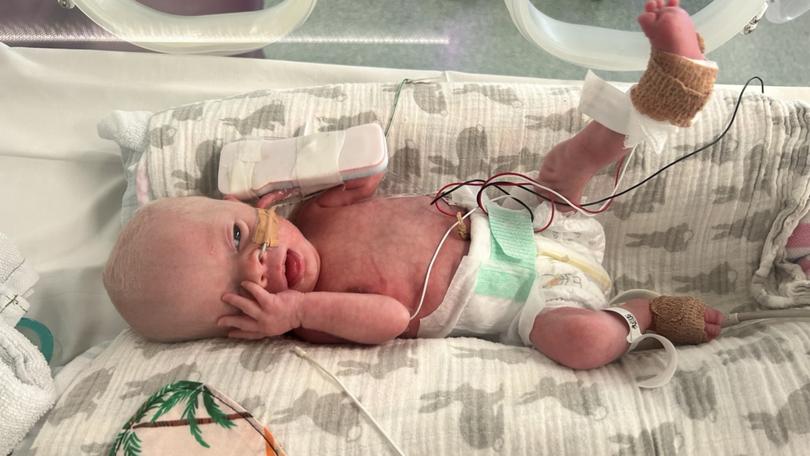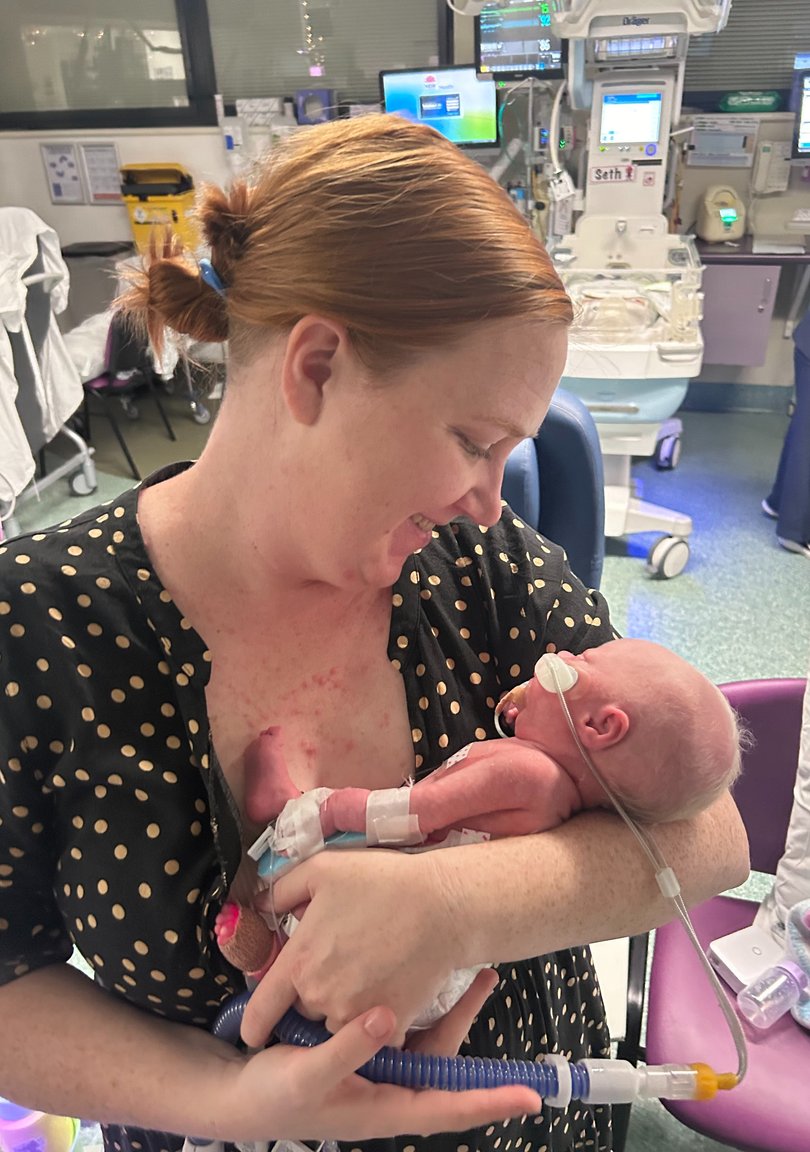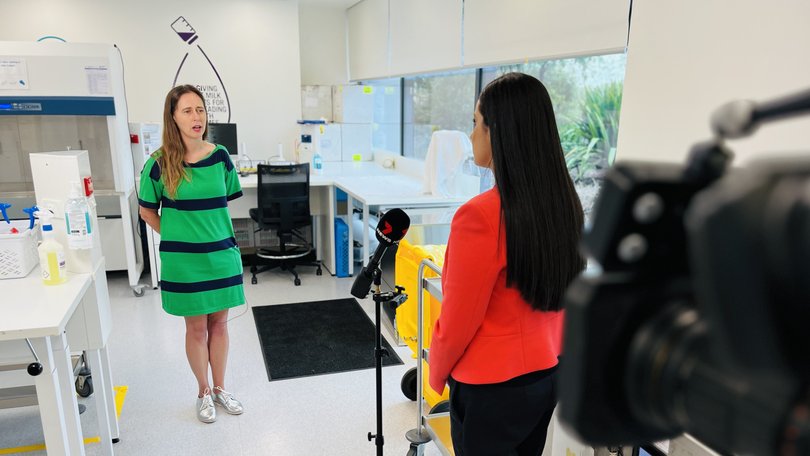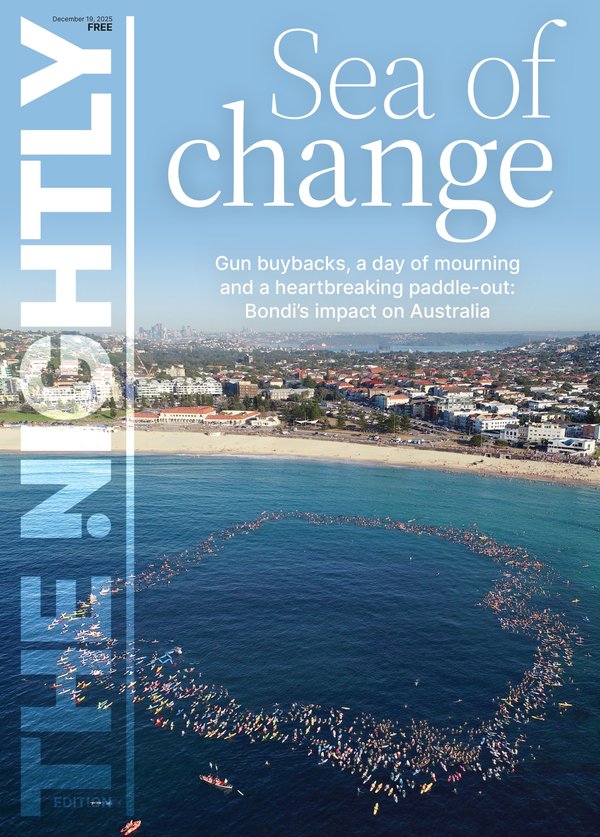Critical donor breast milk shortage to help premature babies prompts urgent warning from doctors and mums
Australia is facing a critical shortage of donated breastmilk needed to help thousands of the most vulnerable babies during their early weeks of life.
Last year, 55,000 bottles of breastmilk were sent to 35 hospitals across the country.
Every week about 130 litres is collected.
Sign up to The Nightly's newsletters.
Get the first look at the digital newspaper, curated daily stories and breaking headlines delivered to your inbox.
By continuing you agree to our Terms and Privacy Policy.But Lifeblood, the organisation that supplies the milk, says demand is increasing.
“Donor numbers are lower than what we need to meet demand. We had an incredibly difficult winter period because we found a lot of our donors were unwell. That has left us short at times over the winter period. We still don’t have enough donors looking forward to meet that demand,” Lifeblood manager Jemma Falkenmire said.
Mother Sarah Oliver, 35, delivered her daughter Matilda seven weeks early. She weighed just 1.3kg.
While Oliver has come to accept her journey is different to others, she admitted the early days were incredibly difficult.
“I was wrecked emotionally and physically. You put on a happy face because you’ve got to show the world. But, it was heartbreaking,” she said.
“It’s really hard to watch a lot of other people go through a similar thing at a similar time to you and their situation is extremely different.”

Unable to produce enough of her own breastmilk at the start, the 35-year-old relied on milk donations, to give her daughter a fighting chance.
Compounding the difficult situation, Matilda also developed necrotizing enterocolitis, a serious and often deadly gut disease, in the early stages of her life. But she managed to fight through.
“We were so thankful for that donor milk you know when she got really unwell we don’t know what would have happened if she had been on formula as well as because it may have exacerbated the situation,” Oliver said.
Laura Klein, a leading breastmilk researcher says donor milk is the best choice for these very premature babies.
“We now have really strong evidence from international clinical trials that using donor milk instead of infant formula for these babies that are born preterm halves the risk of necrotizing enterocolitis,” Klein said.

She said while the donated breastmilk was a precious resource, it was only a short term fix, to help mums until their own milk comes in.
“Donor milk isn’t equivalent to maternal breast milk and we really want to emphasize that donor milk should be available as a short-term bridge to breastfeeding and mums should always be supported to provide as much of their own milk as possible,” Klein said.
Donors are screened and tested for key infectious diseases, using the same processes Lifeblood applies to blood donations.
Breastfeeding mums also need to avoid alcohol and common medications including ibuprofen.
Experts, including former Olympian turned obstetrician Dr Jana Pittman said that should not be a barrier to donating.
“Donating breastmilk is a wonderfully special thing that you may have the potential to do,” Dr Pittman said.
“Obviously, there’s a few hoops to jump through because we’re giving that milk to little premature babies, but please hang in there and give it a shot.
“It’ll be definitely worth it and you can certainly help save the lives of our most vulnerable babies.”
The donation service operates across most of the country.

7NEWS understands talks are now underway with the Victorian and Northern Territory Governments to extend the program there.
“When the service first started around five years ago, three quarters of Australian premature babies didn’t have access to donated breast milk. And we’ve mostly closed that gap, but there is still a little work to go to fully close that gap,” Lifeblood manager Jemma Falkenmire said.
The milk lab is just one service offered to the more than 25,000 premature babies born in Australia every year. Most of them will require some form of extra care at birth.
While there is a lot of support for families, more is needed, particularly for hospitals reliant on specialist equipment that is sometimes worth millions of dollars and are critical to keep vulnerable babies alive.
“We birth very, very tiny little babies. I got to hold one last week that was only 500 grams. Tiny little humans trying to make their way into the world,” Dr Pittman said.
“But what it does require is more funding and more awareness and just people knowing that there are mums and families out there fighting off really hard situations to the best of their ability and that we can help in many ways other than just awareness.”
Baby Matilda still has to visit doctors and specialists almost daily to deal with persistent problems with eating and growing.
But she is a fighter with her mum describing Matilda as a pillar who holds the family together.
“We are going to keep on being Matilda and being the small thing she is. Hopefully we’re going to get bigger. We’re going to live life and prove everyone wrong, I think, both me and her,” Oliver said.
Sarah Oliver is hoping to spread awareness about the incredibly difficult time families with premature babies go through.
“A NICU [neonatal intensive care unit] stay is, whether it be two days or however many months, is horrendous and I don’t wish that upon anyone. But to get some extra support and help as many parents as we can would be great.”
November 17 is World Prematurity Day.
Originally published on 7NEWS
